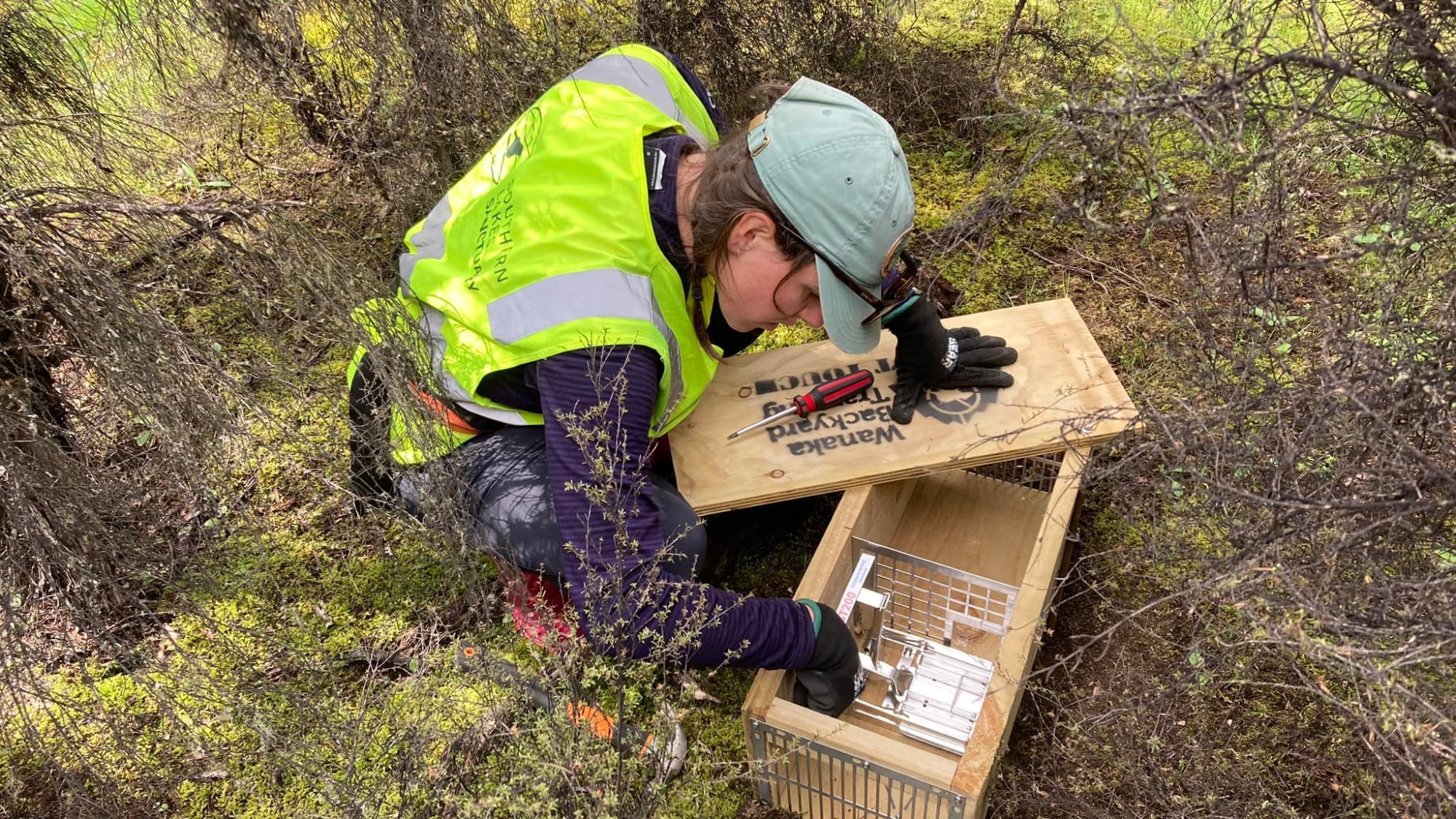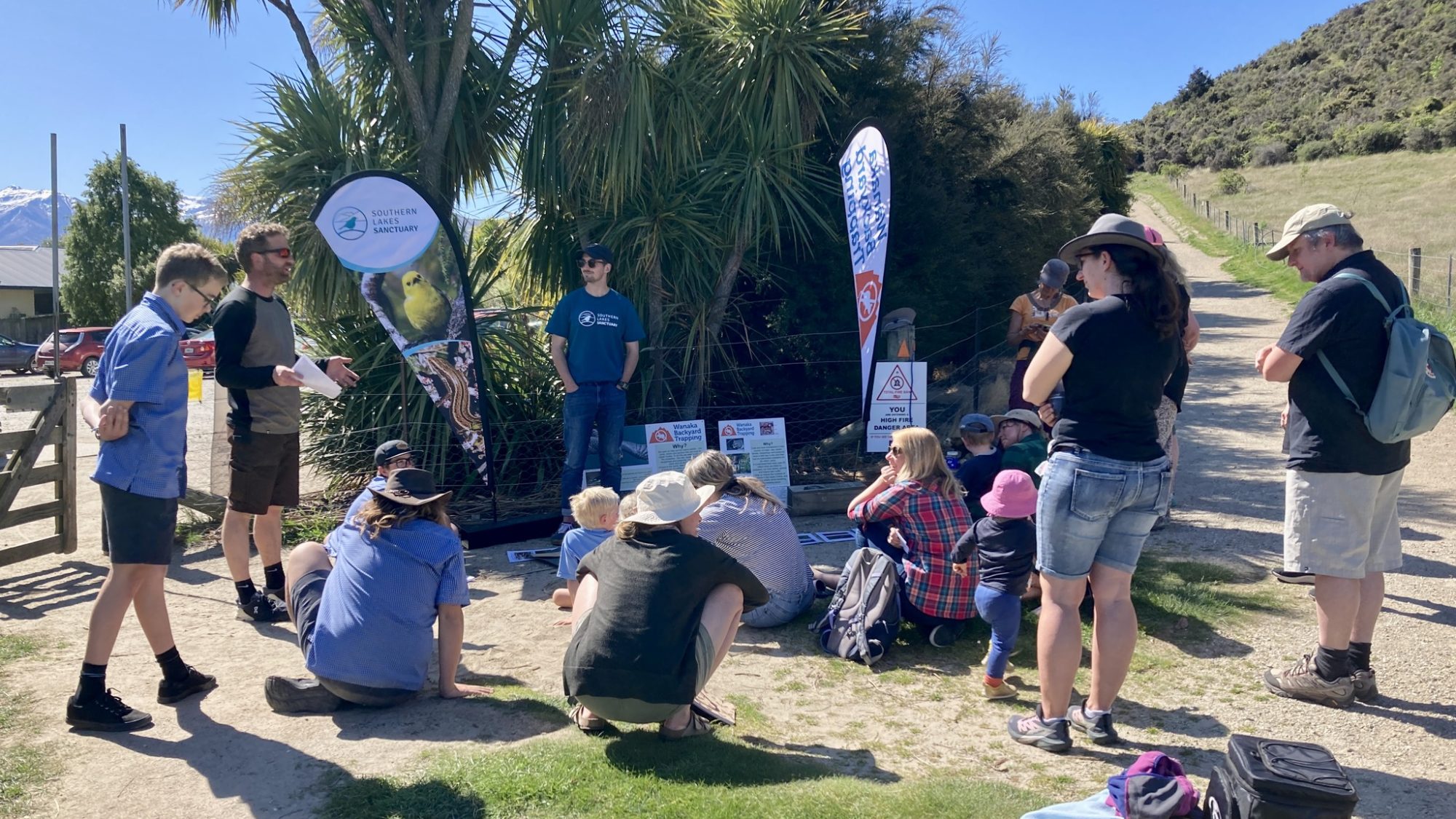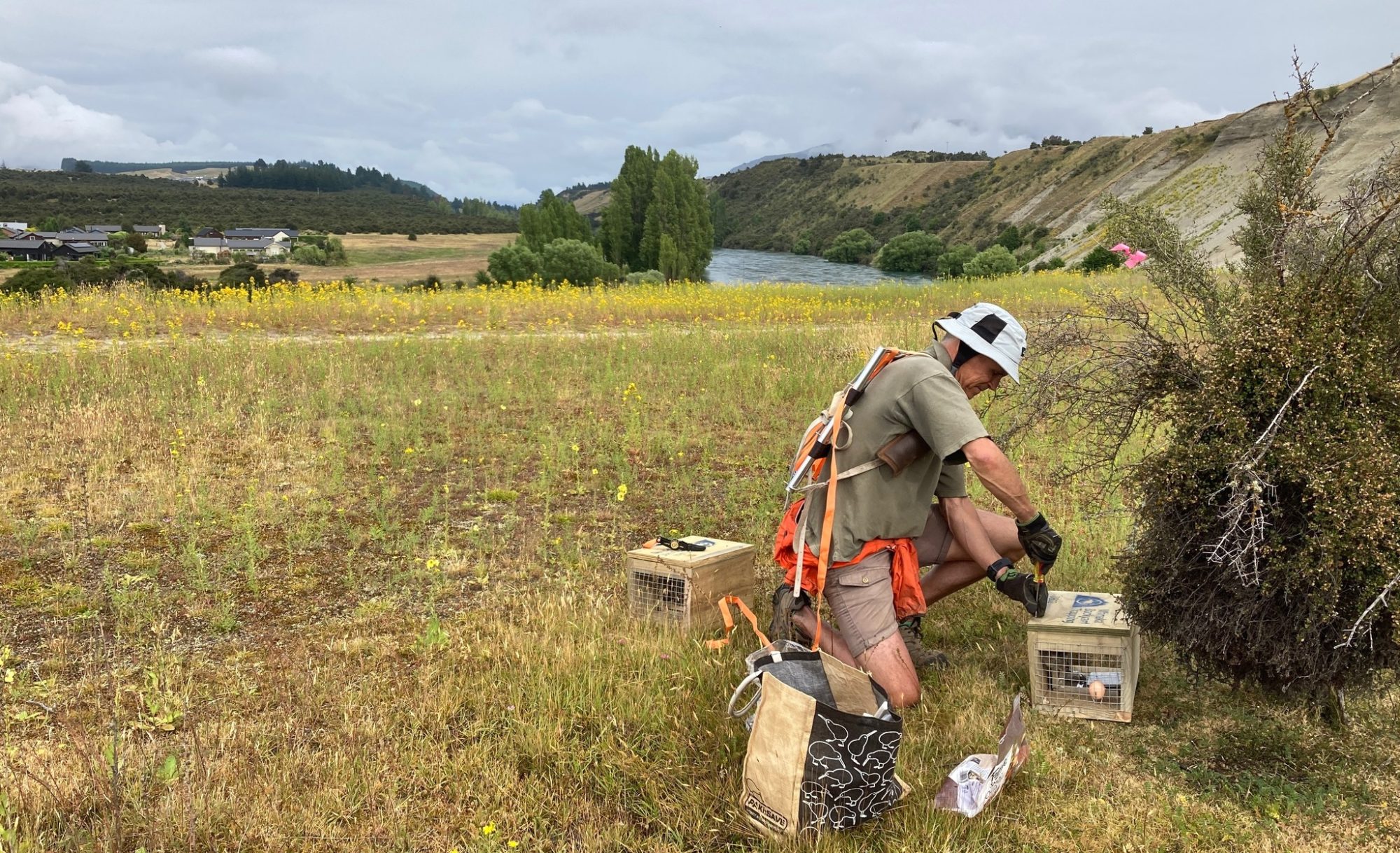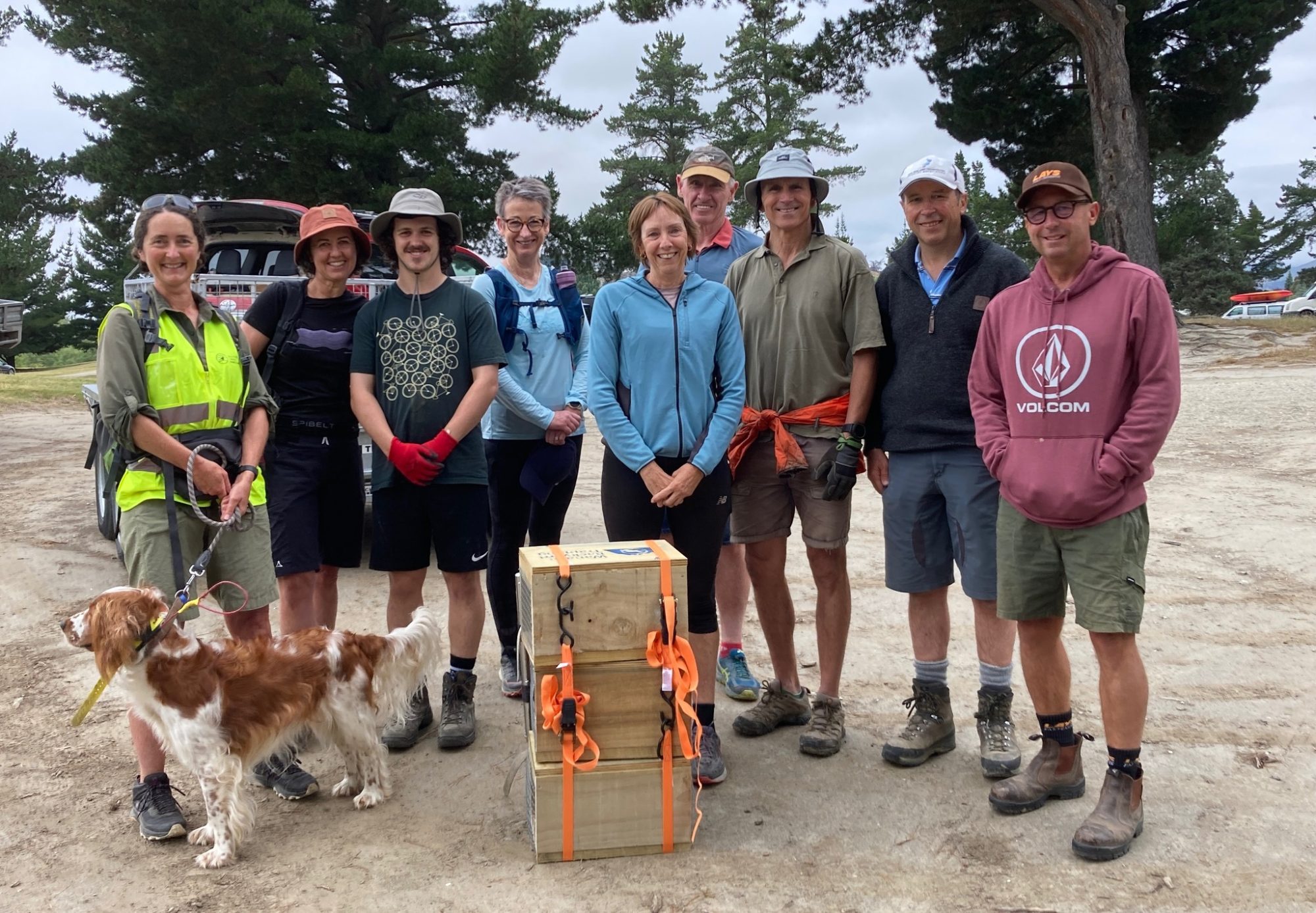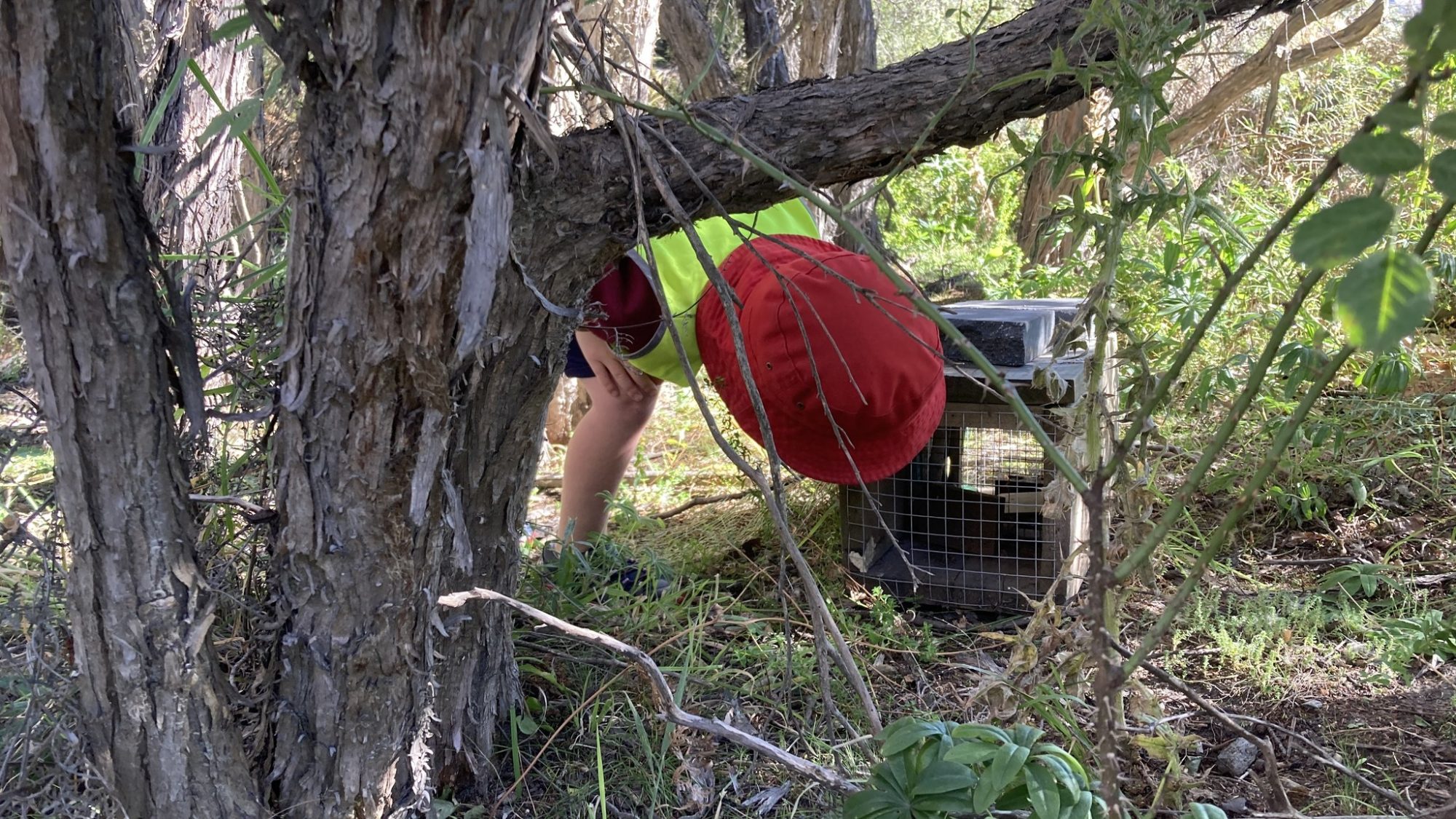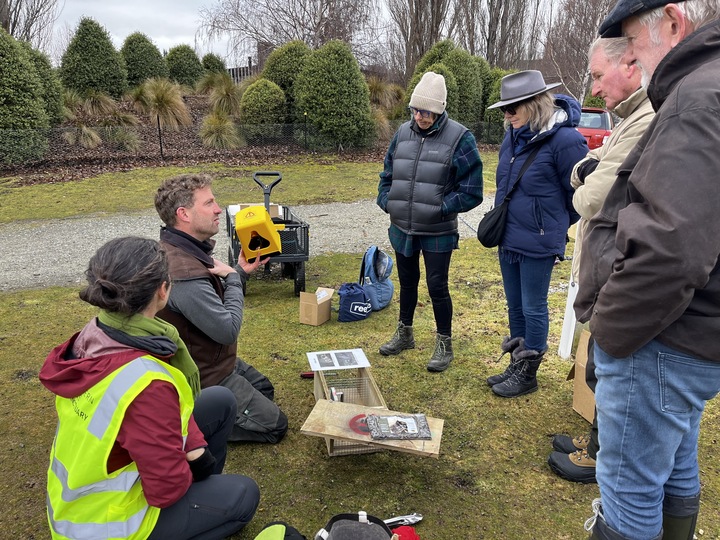If you’ve ever set foot in Mount Aspiring National Park, you’ll be no stranger to the incredible backdrop of sounds and songs our native birdlife brings to the track
From the piwakawaka / fantails following you from bush to bush, to cheeky kea calls from overhead, our native species are a sizable part of what makes our rohe / region so unique.
In Wānaka and our stunning surrounds, native birds and endemic wildlife are as much a part of the land as the hills themselves. But more than a serene soundboard for your latest adventure, they also tell an important story about the health of our local ecosystems – ecosystems now at significant risk thanks to introduced predators and their harmful effect on our native wildlife.
Enter Predator Free Wānaka, formerly Wānaka Backyard Trapping. A dedicated, community-led initiative, Predator Free Wānaka works tirelessly to restore balance to the region’s ecosystems and protect our native wildlife by cutting down on introduced predators. With an ambitious vision to create a predator-free Upper Clutha Basin, the team are on a mission to safeguard the birdsong, flora, and fauna that make this region so special.
Last year, Predator Free Wānaka were awarded a Love Wānaka Impact Grant to support their work in the region. Read on for more about who they are, what they do, and how these funds have helped them expand their reach and get one step closer to their goal of a predator-free region.
Formed in 2018, Wānaka Backyard Trapping was initially set up to encourage locals to trap pests on their properties and to establish and manage trap lines around the region. Their goal was, and is, to educate people about the importance of our native ecosystems, reduce pest numbers, and protect our native wildlife.
“Our mission is simple,” says Guy Kennedy, chair of Predator Free Wānaka. “A thriving native wildlife in the Upper Clutha.”
The team now manage over 600 traps across 20 lines on public land, targeting a wide range of introduced predators including mice, rats, hedgehogs, possums, stoats, ferrets and weasels. They’ve also helped set up more than 400 traps on private land, with an additional 20 traps in their trap library for locals to borrow. Thanks to their network of over 120 dedicated volunteers, thousands of predators have been removed from our region since the group formed.
Awarded a Love Wānaka Impact Grant in 2024, they’ve now been able to double down on their efforts, expanding their impact and engaging more of the community in their important mahi / work.
Once upon a time, Wānaka Backyard Trapping was just that. Backyard traps. But seven years on, their efforts extend far beyond backyards, with established traplines covering expansive conservation areas, public reserves, private properties, and DOC land. So now, it’s out with the Backyard Trapping, in with the Predator Free Wānaka. While their mission remains the same, this name change better reflects their growth as an organisation and their bigger commitment to restoring Wānaka’s natural ecosystems through community involvement.
“We felt we’d outgrown the Wānaka Backyard Trapping name,” says Guy. “We felt a refresh of the name and logo would demonstrate our ongoing commitment and enthusiasm to predator control in the Upper Clutha.”
It also aligns their organisation more closely with the national Predator Free 2050 movement, which aims to rid Aotearoa of rats, stoats, and possums, three species that have devastated native wildlife populations nationally and in our rohe / region.
In 2024, Love Wānaka awarded Predator Free Wānaka an Impact Grant to support their trapping work. This funding has been key in expanding their reach and ensuring their traps remain active and effective. While other funding sources are often restricted to purchasing new traps, Love Wānaka’s Grant allowed Predator Free Wānaka to invest in essential supplies to maintain and monitor existing traplines.
With these resources, Predator Free Wānaka has been able to maintain and expand critical trap networks, targeting high-risk areas where predator populations remain a threat.
This year, Predator Free Wānaka focused on several key locations for their trapping efforts:
Additionally, Predator Free Wānaka is in the process of deploying traps in two major areas:
Already, the results are speaking for themselves. Though measuring success scientifically can be a challenge, especially in the short term, anecdotal evidence shows that bird populations are increasing in key areas, with a steady reduction in predator numbers.
As part of their long-term strategy, Predator Free Wānaka are also working on a 20-year vision called the ‘Wānaka Halo.’
“We’re aiming to extend our trap network in a logical sequence to eventually form a protective halo over the Upper Clutha,” says Guy. This initiative aims to create a protective buffer around Wānaka’s native ecosystems.
With the new rebrand, Predator Free Wānaka has also launched a new website and logo to better reflect their evolving mission. The website now provides opportunities for the community to sign up for newsletters, make donations, and learn more about how you can contribute to Wānaka’s predator-free future.
Predator Free Wānaka’s work is driven by a simple yet powerful philosophy: conservation is a collective effort. It’s a team sport, and it’s so important that every player does their part. Here’s how you can get involved in their community efforts.
Volunteers are the real backbones. Whether you’re new to the gig or consider yourself a trapping connoisseur, there’s a place for everyone. They’ll bring the trapping kits and guidance, you bring the passion for protecting Wānaka’s wildlife.
You don’t even have to be a pro. Or know what you’re doing much at all. The team will help you every step of the way, from selecting the right number and type of traps to full training and supplying the bait. Or, if you just need one trap for a short term, check out their trap library.
Every dollar helps keep the project running, so making a donation goes a long way. All proceeds go toward purchasing bait, maintaining traplines, and funding essential conservation initiatives.
If you can’t get trapping, get yapping. Encourage your friends, whānau, and visitors to get involved. Follow Predator Free Wānaka on social media, get your community involved, and share their message far and wide.
Love Wānaka exists to drive environmental protection and regeneration, which makes your support a meaningful step toward restoring our region’s natural balance, ensuring native wildlife can thrive, and securing a healthier ecosystem for future generations. Making a donation or becoming a Love Wānaka Impact Partner is just one way to get involved – will you be part of the change?
